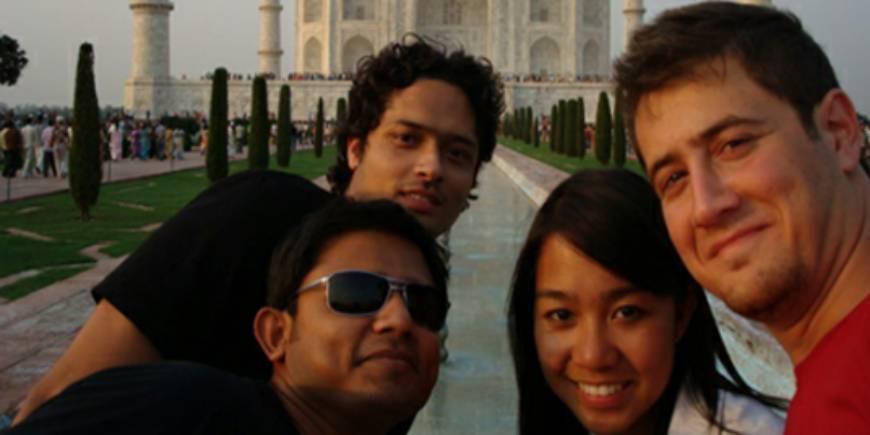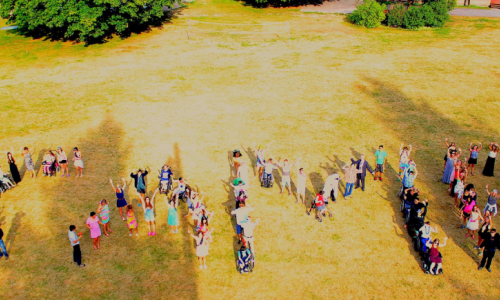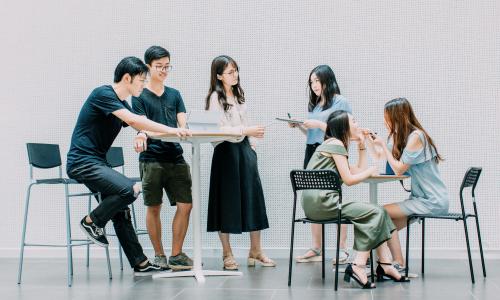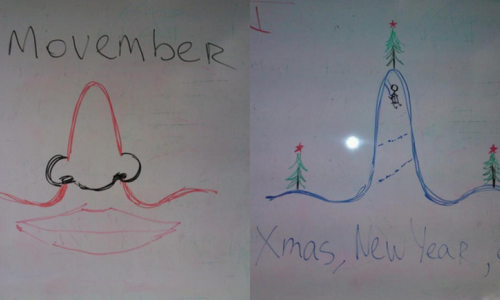
‘No problem’. This was the philosophy Matt Yigit Karakilic lived by while spending eight months in the heart of India. Working on a Co-op term with SAP, the world’s leading provider of business software, Matt learned the true meaning of an international experience. The OLC sat down with Matt upon his return to discover how he went from being an unknown foreigner to part of India’s big family during his short stay there.
What made you decide to do an International Co-op work term?
I had been talking with my SIAT Co-op Advisor Nav Chima who suggested the opportunity in India. He encouraged me to go, helped me with the process and was a resource when I returned home. I researched the company and discovered SAP is the third largest software company in the world (merged with Business Objects). This helped push me as I knew I’d be gaining phenomenal experience. Interestingly, I, along with another student from SFU were the first SIAT students to go to India.
How did you prepare to go on your international co-op work term?
I’m originally from Turkey and when I was a teenager, I went to Germany for two weeks without my family. Germany was a new culture, new place and new language and I was okay with it. Again, when I moved to Canada without my parents, I experienced a new country with new scenery and customs so I’ve been able to adapt well to new cultures which prepared me, in a way, for India. In terms of preparing to live there, the company helped us find a place close to the office, and provided a shuttle to work. The house was half covered by us and half by them. In addition, I received the India Mobility Award (scholarship) from SFU.
Were friends and family hesitant for you to go?
My parents and friends asked ‘why India?’ What they didn’t understand was that it was a huge opportunity. They were not aware the company is the third largest of its kind in the world, that it would be my first experience in a working environment in my field and that I’d be one of the first SIAT Co-op students to go to India. My parents raised me to be independent and we have a friendship so I knew they would be able to eventually see these things – which in the end they did.
How was your first international phone interview?
On the phone you have no idea the expression of the other person to give you cues as to how the interview is going. When I got on the phone, he asked if I was nervous and when I responded with ‘yes’ then ‘no’ then ‘maybe’ he chuckled which put me at ease – it’s a small thing but it did volumes in making me feel comfortable. Overall, the interview was less formal than I expected and it mirrored India’s culture of friendliness.
Do people work differently in India than in Canada?
In India workplaces are more social and less isolated but it is still very organized. Here in Canada we are more isolated in our own offices and behind walls, the open workspace over there made me feel like I was a part of the family. I also felt like part of the family due to language. Neither my coworkers nor myself are native English speakers so the mistakes in grammar, etc we use are the same. Because of this we actually understood each other better.
What did your position involve?
Overall, we designed software for customers, but specifically, my role was as a user experience designer. The face of software that we see is called interface, which was our territory. We did research asking customers about what they would like to see. Then we did usability testing – people from around the world go through scenarios we created to identify the usability of, say, a movie. We change our interface based on this feedback. I got to work on three different levels of projects; a recently created project, one created by us, and the one that needed new features.
What did you enjoy about Indian Cuisine?
More than the cuisine, in which butter chicken and chicken tikka were my favourite, I enjoyed meal times with colleagues. We had fish Fridays, where we ate at this tiny place, squeezing in 8-10 of us. We’d eat fish, deep fried and completely unhealthy, with our hands. So more than the actual food I ate, I will remember those moments and they are the moments I still miss.
Did you sightsee?
I went to the Goa, which would be similar to Tofino, the Taj Mahal and New Delhi. I also went to Hampi - a beautiful, ancient and spiritual village in a secluded area, staying in a guest house where the family lives on the bottom floor and you stay in the top.
Any advice for students interested working internationally or in India?
Working internationally: Your habit will be to try and figure out what to expect – do try to expect as much as you can but remember you can never predict what will happen. This is a good thing as it can lead to bonus experiences – for me I didn’t know the company would merge with another company but it gave me another tick on my resume of what I’ve been a part of.
Working in India: Accept the people and country as they are and not as you need them to be, doing this will enable you to see what India has to offer. For instance, when catching rickshaws the workers always bargain over price, they don’t think you’re dumb or anything they are just trying to make money. In accepting this you can adjust your response to it – get angry or get involved with the bargaining. This was echoed in the movie ‘Outsourced’ (watch it before you go) where a company outsources staff to India. The main piece of advice the character gives to a foreigner travelling in India is accept the country and people as is and everything will fall together. Problems will occur, but as the famous Indian saying goes, it’s ‘no problem’– there is no problem that can’t be fixed, it just requires patience.
Also, you will see the existence of poverty and people trying to survive, this also requires acceptance. Visitors may think about the health violations, etc when they see these things but choose instead to simply say ‘that was interesting’. The more you accept the culture the more you will enjoy the people. I found myself becoming part of a small work family and then a part of a bigger family and then, in the end, I became a part of India. People ask me where I’m from and I say I’m from Turkey and I also say I am from Canada. Now, I can easily say and feel that after 8 months I am a part of India. I also still keep in touch with my coworkers over there – they are, after all, family.
Beyond the Blog
-
Thinking of going internationally? Check out SFU’s International Co-op resources for trip planning, visas, job opportunities and more!
















